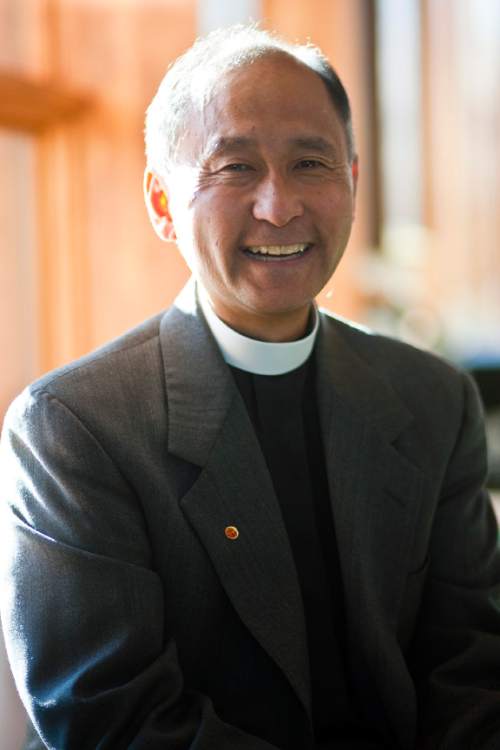This is an archived article that was published on sltrib.com in 2015, and information in the article may be outdated. It is provided only for personal research purposes and may not be reprinted.
It is getting harder for some legislators to argue against giving the dignity of affordable healthcare to about 100,000 of our Utah neighbors — especially when the federal government picks up the vast majority of the bill. It is even harder to argue against allowing 102 or more of our Utah neighbors to die each year simply because they can't afford to go to the doctor to treat what are often treatable medical conditions (Journal of Health Affaires figures for states currently opting out of Medicaid expansion).
Instead of facing this, somehow, the issue has now become how can this state possibly pay what amounts to about $50 million to $70 million to allow the impoverished access to life sustaining health care. This is about one-half of one-percent of a $14 billion Utah state budget — pocket change when it comes to running a state. After we taxpayers are being told without reservation to pay for much of that $14 billion budget, politicians are wondering how can they possibly ask us to pay about the cost of a latte a month in a matter that's life and death for our neighbors.
The latest version of Medicaid expansion asked medical providers to pick up much of the cost in license increases and a tax on Medicaid fees. I sat in the one public hearing on Oct. 6 for four hours to hear nearly every medical provider trade group turn down the proposal because of having to foot much of the bill. One worries that was enough of a political excuse to kill the proposal when Republicans met behind closed doors, leaving 100,000 still without health care.
If the providers cannot pay, and the politicians don't want to ask us to pay the few dollars it will take from each of us, then why not tax products that cause more and more people to need medical care? This way, we might even reduce the use of harmful products, as well as provide for dignified and life-saving healthcare for the impoverished among us.
For example, consider e-cigarettes. Just a month ago, the Utah Department of Health released a study that e-cigarette use has doubled among Utah teens. A healthy tax on e-cigarettes can help create a healthy result for both Medicaid expansion and our youth. We know expensive tobacco taxes have reduced smoking as well as are bringing in $1.70 per pack to the state. We know high-fructose products are clogging our arteries and contributing to clogging our health system with increasing the risk of Type-2 Diabetes, hypertension and liver damage. Sodas, processed juices and other products can be specifically taxed. This again can encourage healthier alternatives and fund Medicaid expansion. Of course, tobacco and alcohol (already taxed) are obvious sources for more taxes. Utah is still below the national average among non-tobacco-growing states in its tax rate on cigarettes.
I strongly ask our legislators to examine this type of funding as an alternative. It is healthy for the impoverished. It is healthy for our providers. It is healthy for us all — and healthy for the economy. It is healthy for us all. This goes back to the whole reason to expand Medicaid. It is simply the right thing to do.
The Right Rev. Scott B. Hayashi is Episcopal Bishop of Utah.



